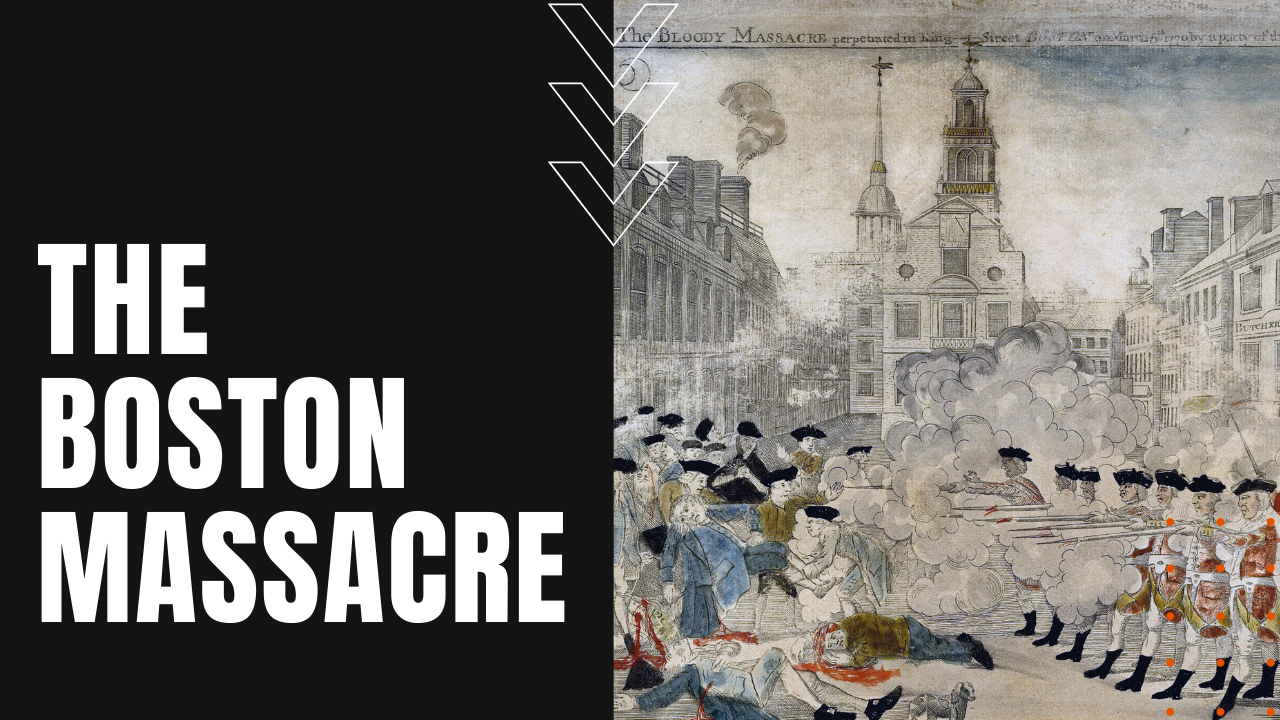Boston Massacre: British Soldiers and Colonialists Clash in 1770

Tensions ran high in early 1770 Boston. With more than 2,000 British soldiers occupying the city of 16,000 colonists, American colonialists became ever more vocal over repressive British tax laws like the Stamp Act and the Townshend Acts, prompting the Sons of Liberty to coin the phrase, “no taxation without representation.”
Colonialists vs. Loyalists
Conflicts were on the rise between British soldiers and irate colonists, as well as skirmishes between patriots and those colonialists who remained loyal to the British crown. On February 22nd, a mob of patriots attacked loyalist Ebenezer Richardson’s store, prompting Richardson to fire his gun through a front window of his nearby home. Richardson’s shot took the life of 11-year-old Christopher Seider, which further escalated patriotic pushback over British rule.
What was the Boston Massacre?
On the frigid, snowy evening of March the 5th, 1770, Private Hugh White was the only British soldier guarding the King’s money stored inside the Custom House on King Street. It wasn’t long before angry colonists began taunting him with insults and threats of violence, leading White to call for re-enforcements. Fearing that colonial rioters would take the King’s money, Captain Thomas Preston arrived on the scene with several soldiers, taking up defensive positions in front of the Custom House.
Tensions continued to escalate when colonialists struck the soldiers with clubs and sticks, and while reports differed regarding what happened next, someone supposedly said the word “fire.” After the first shot rang out, other soldiers opened fire as well, killing five colonialists and wounding six others.
Due Process for Preston
Within hours, Preston and his soldiers were arrested, while the days and months that followed brought with it a massive uptick in colonial support for Sons of Liberty leaders such as John Hancock and Samuel Adams, which in turn created so much unrest in Boston that the British retreated from the town for Fort Williams. Although far from a loyalist, John Adams would defend Preston and his soldiers in a court of law, insistent that the British be given a fair and unbiased trial.
After witness Richard Palmes testified that the word “fire” was given after shots had already rang out, Adams argued that reasonable doubt existed, obliging the court to find all men not guilty except for two, who were found guilty of manslaughter and were branded on the thumbs as first offenders per English law. Nevertheless, the fuse of rebellion had been lit, stirring tensions over the next five years, which would lead to the Boston Tea Party, the formation of the Continental Congress, and the American Revolution.
